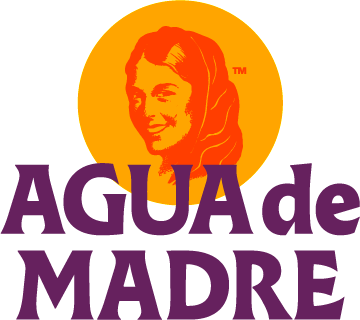What we have discovered
Based on recently commissioned research by a specialist team at Huddersfield University we now know the three dominant bacteria that are at work within Agua de Madre. They are all Lactobacillus of the genus Leuconostoc, specifically they are:
- suionicum
- mesenteroides
- pseudomesenteroides (Wormald, 2020)
These bacteria have been shown to form the majority of ‘live’ cultures within Agua de Madre and as such will provide the key to understanding what benefits this infers to those who drink it.
What does it really mean?
Most people will have not heard of these specific bacteria strains, so to put it all into a bit of context we have extracted out some key information from wider scientific research into ‘live’ bacteria products e.g. Kimchi, milk kefir and others. This will allow us to really understand the importance of these bacteria, the effects that they have and any health benefits they may provide.
Research into the probiotic effects of kimchi lactic acid bacteria, including L. mesenteroides, has shown that when compared with a well known probiotic Lactic Acid bacteria (Lactobacillus rhamnosus) L. mesenteroides exhibited equal probiotic activity. L. mesenteroides also exhibited resistance to gastric and bile acid, adhesion to intestines and thermal stability (Lee et al, 2016).
Another study showed that when compared with a commercial probiotic (Lactobacillus plantarum 299v) L. mesenteroides ‘survived in vitro gastrointestinal simulation conditions: the stomach simulation (3 h, pH 2, 37 °C) and the intestinal simulation (4 h, bile salts 0.5%, 37 °C)’. L. mesenteroides also showed ‘strong hydrophilic character’ and ’a mucin adhesion rate similar to that of L. plantarum 299v’. In conclusion it was determined that ‘L. mesenteroides exhibited in vitro probiotic potential’ (Diana et al, 2015).
- mesenteroides has clear potential as a probiotic and has been ‘shown to have sIgA stimulating activities as well as to influence body-wide immune reactions’ sIgA is the immune protein that protects mucosal surfaces, such as your gastrointestinal tract, from invaders like pathogenic bacteria and viruses. ‘By increasing sIgA and influencing the immune response, L.mesenteroides can provide health benefits in protecting you from pathogens and in keeping the intestinal cells healthier’ (https://www.powerofprobiotics.com/Leuconostoc-mesenteroides.html).
Both Sun et al and Choi et al, found that L. menesteroides and L. pseudomesenteroides have an anti-obesity function and highlighted they may be used to ‘prevent obesity, and ameliorate diabetes and lipid metabolism imbalances’ and could have potential as dietary supplements for weight control. (Sun et al, 2020) (Choi et al, 2017)
What is the importance of this?
The research shows that L. menesteroides is not only the most widely researched strain of bacteria in Agua de Madre, but also the one with the most potential as a probiotic and with the offer of wider health benefits. The research clearly shows that it is resistant to stomach and intestinal conditions and can therefore get to these areas alive to improve the microbial diversity of your gut. By drinking Agua de Madre these beneficial and ‘live’ cultures can aid the immune response and keep your intestines healthier by being able to get to where they can have the most effect. The added potential to prevent obesity and ameloriate diabetes is exciting, but this area warrants further research before any specific claims can be made. But be assured we will continue to monitor the latest research and report it as we develop our understanding.
At the current time the EU approved list of ‘probiotic’ bacteria is very small, mainly due to a lack of research into the plethora of potentially beneficial bacteria out there. This will change over the coming years as interest in the benefits of ‘live’, fermented products grows and the base of knowledge grows in tandem. We hope that we can do our part to explore this exciting area and bring the benefits and understanding of how Agua de Madre, and products like it, can promote and improve human health, whilst also tasting fantastic of course.
References
Wormald, R, 2020, Identification of Dominant Bacteria, Fungi and Yeast in Water Kefir (Agua de Madre), University of Huddersfield.
Lee, K.-H; Bong, Y.-J; Lee, HyunKim, H.-Y; Park, Keon-Young, 31/01/2016, Probiotic Effects of Lactobacillus plantarum and Leuconostoc mesenteroides Isolated from Kimchi, Volume 45, 10.3746/jkfn.2016.45.1.012, Journal of the Korean Society of Food Science and Nutrition
Diana CR, Humberto HS, Jorge YF. Probiotic Properties of Leuconostoc mesenteroides Isolated from Aguamiel of Agave salmiana. Probiotics Antimicrob Proteins. 2015 Jun;7(2):107-17. doi: 10.1007/s12602-015-9187-5. PMID: 25690572.
Mengzhen Sun,a Qiya Wang,a Maomao Zhang,b Guohua Zhang,c Tao Wu, d Rui Liu,a Wenjie Sui,a Jiaojiao Zhang,e Jinjin Yin*a and Min Zhang, 2020, Leuconostoc pseudomesenteroides improves microbiota dysbiosis and liver metabolism imbalance and ameliorates the correlation between dihydroceramide and strains of Firmicutes and Proteobacteria in high fat diet obese mice, Food and Function Journal, Issue 8
Choi SY, Ryu SH, Park JI, Jeong ES, Park JH, Ham SH, Jeon HY, Kim JY, Kyeong IG, Kim DG, Shin JY, Choi YK. Anti-obesity effect of robusta fermented with Leuconostoc mesenteroides in high-fat diet-induced obese mice. Exp Ther Med. 2017 Oct;14(4):3761-3767. doi: 10.3892/etm.2017.4990. Epub 2017 Aug 22. PMID: 29042976; PMCID: PMC5639269



